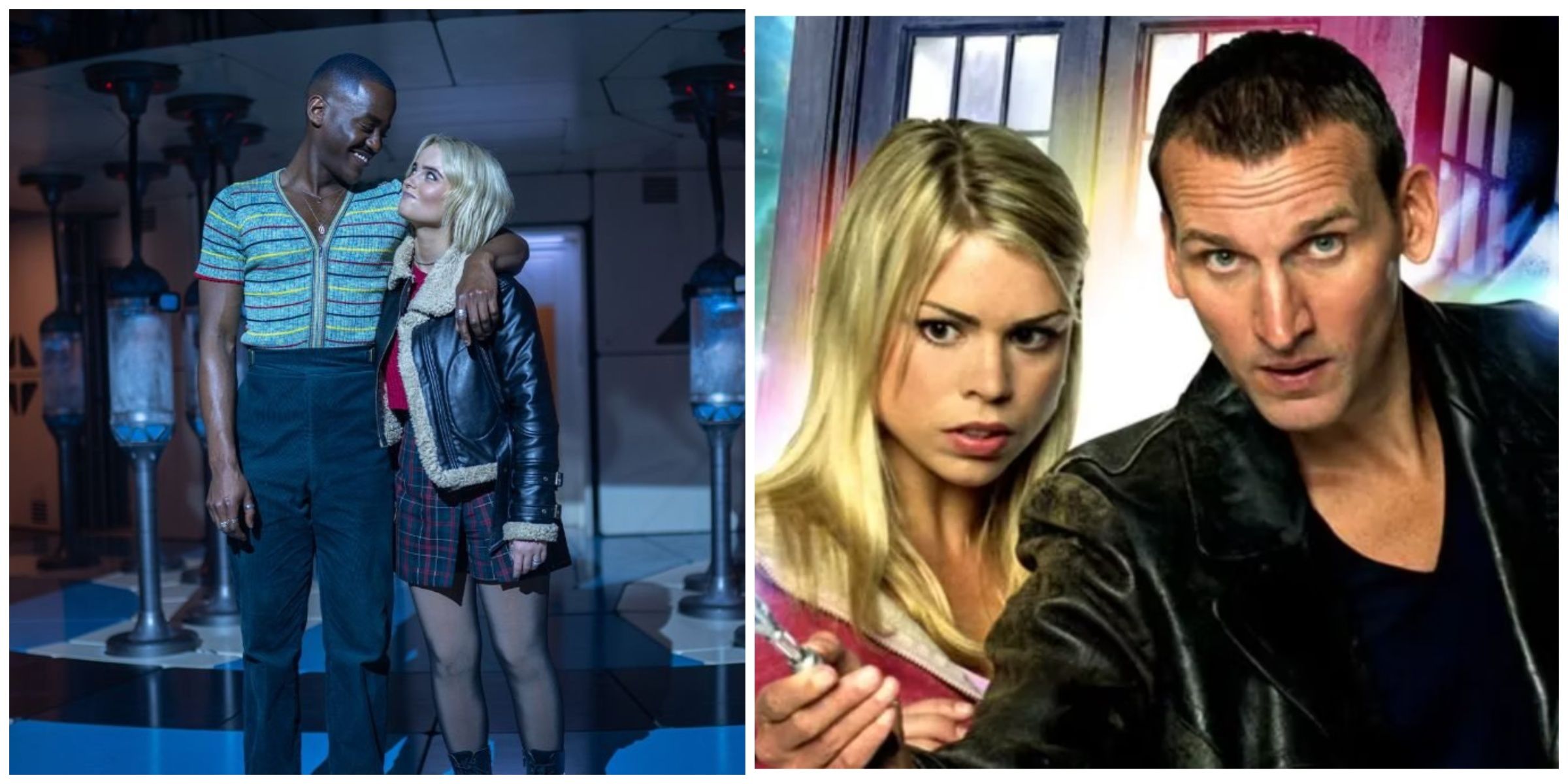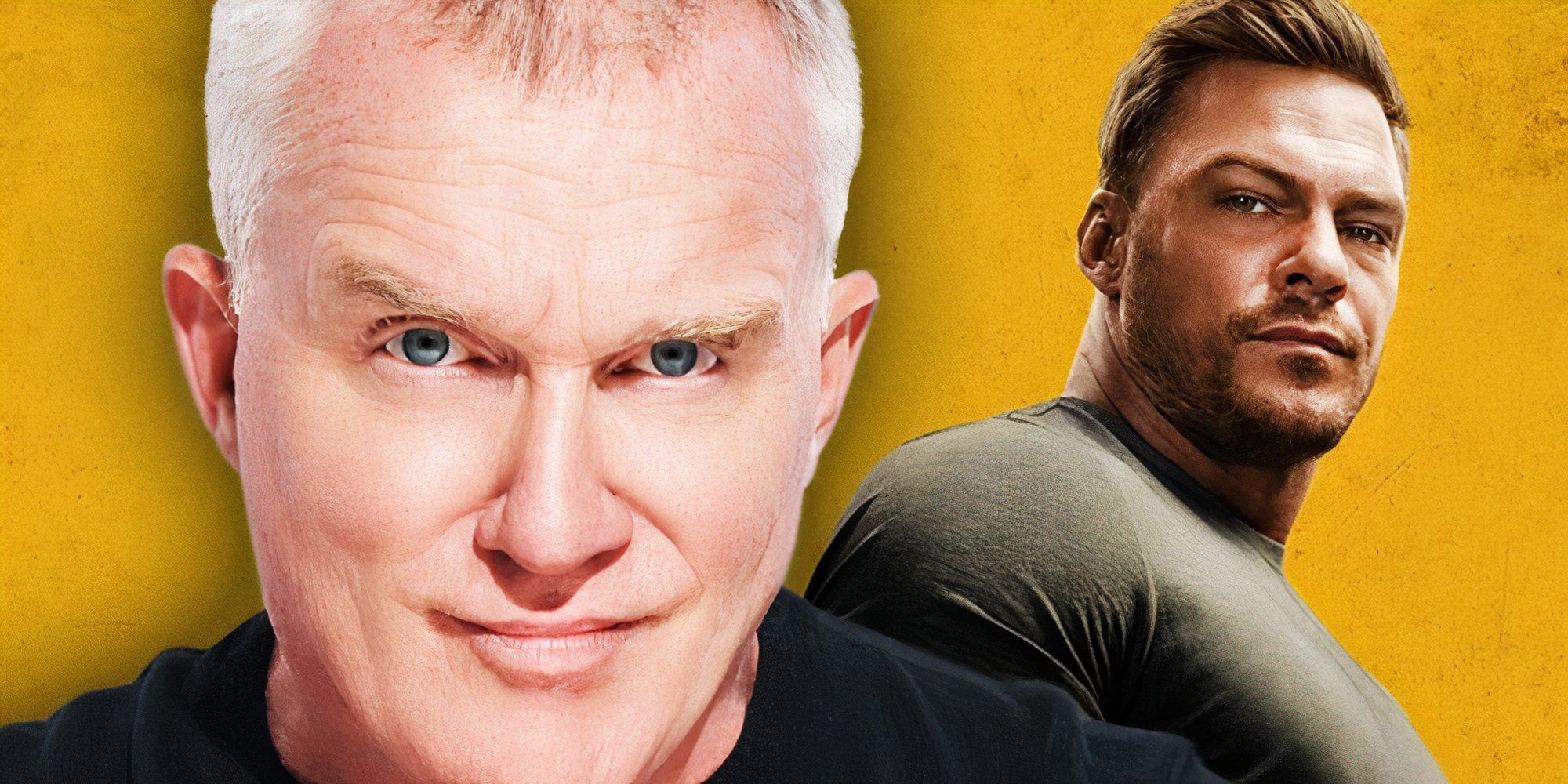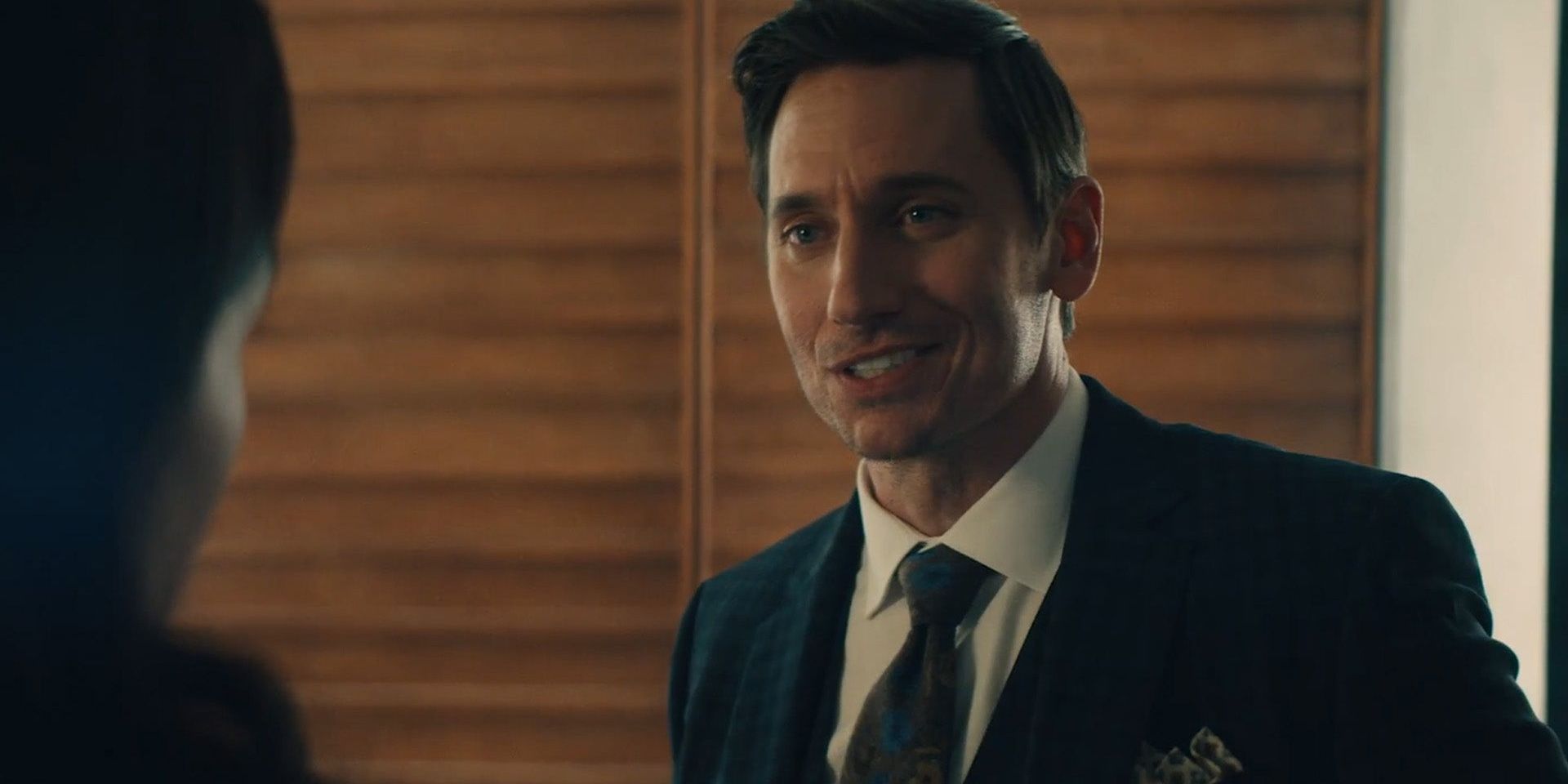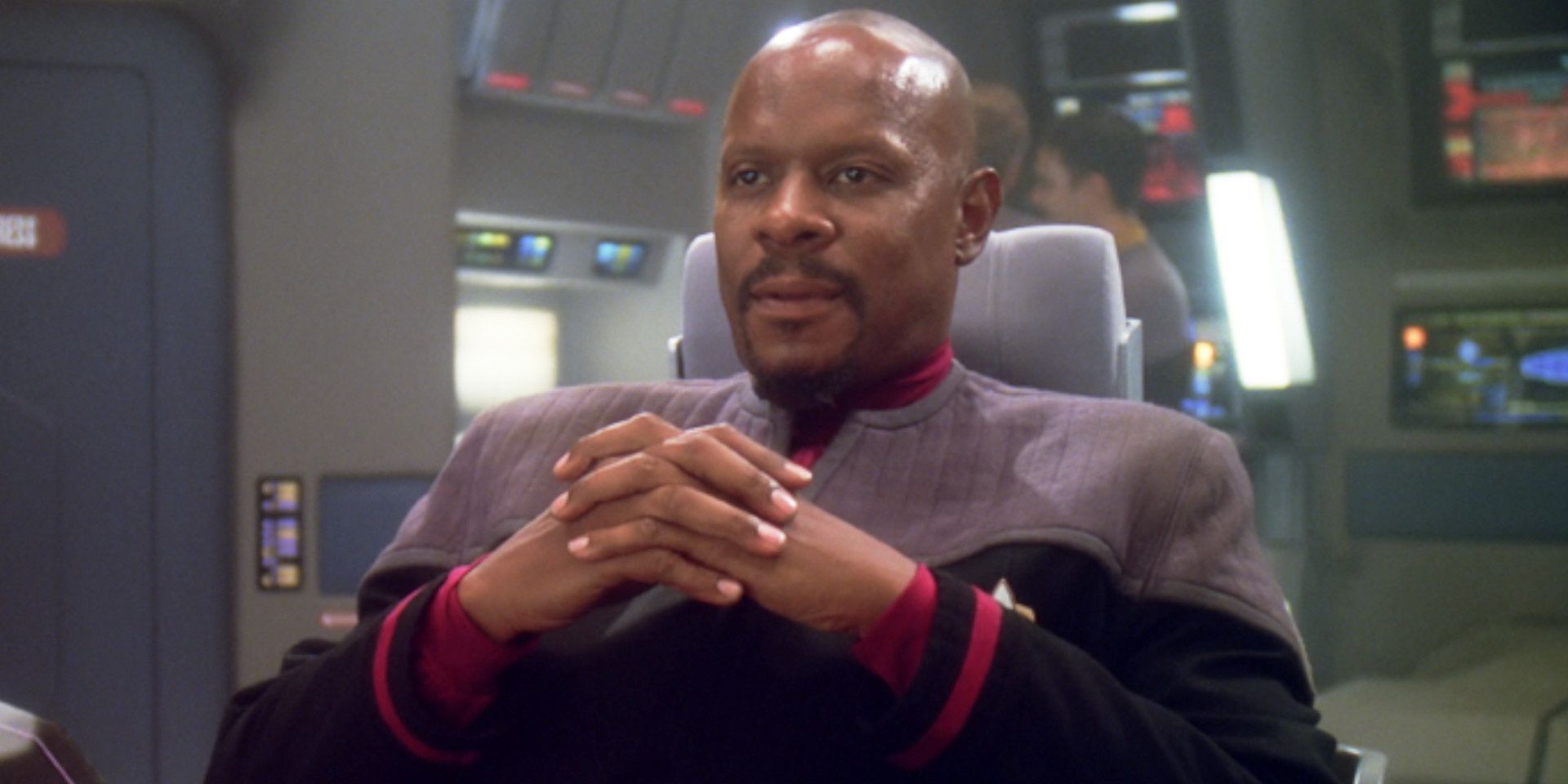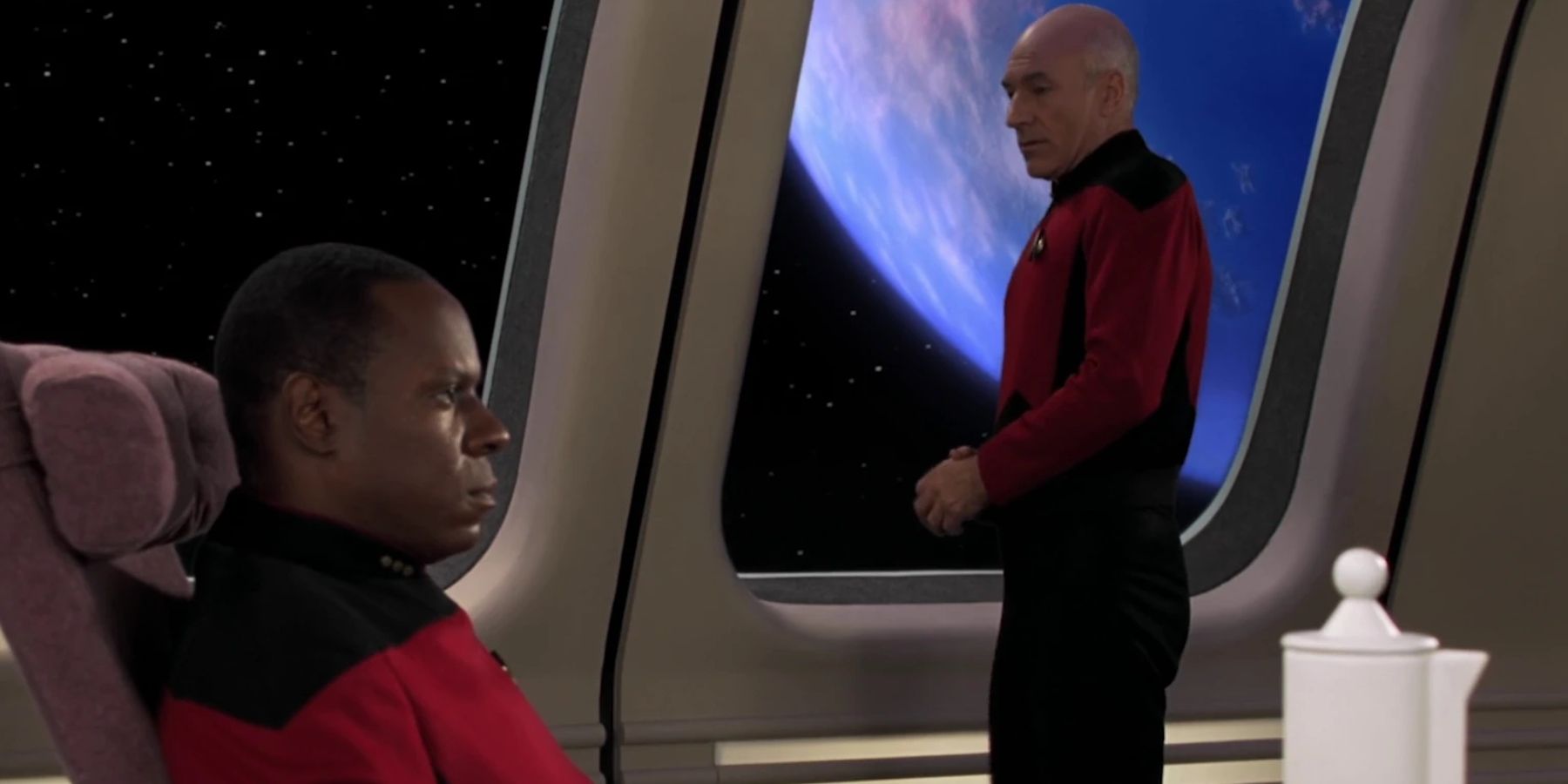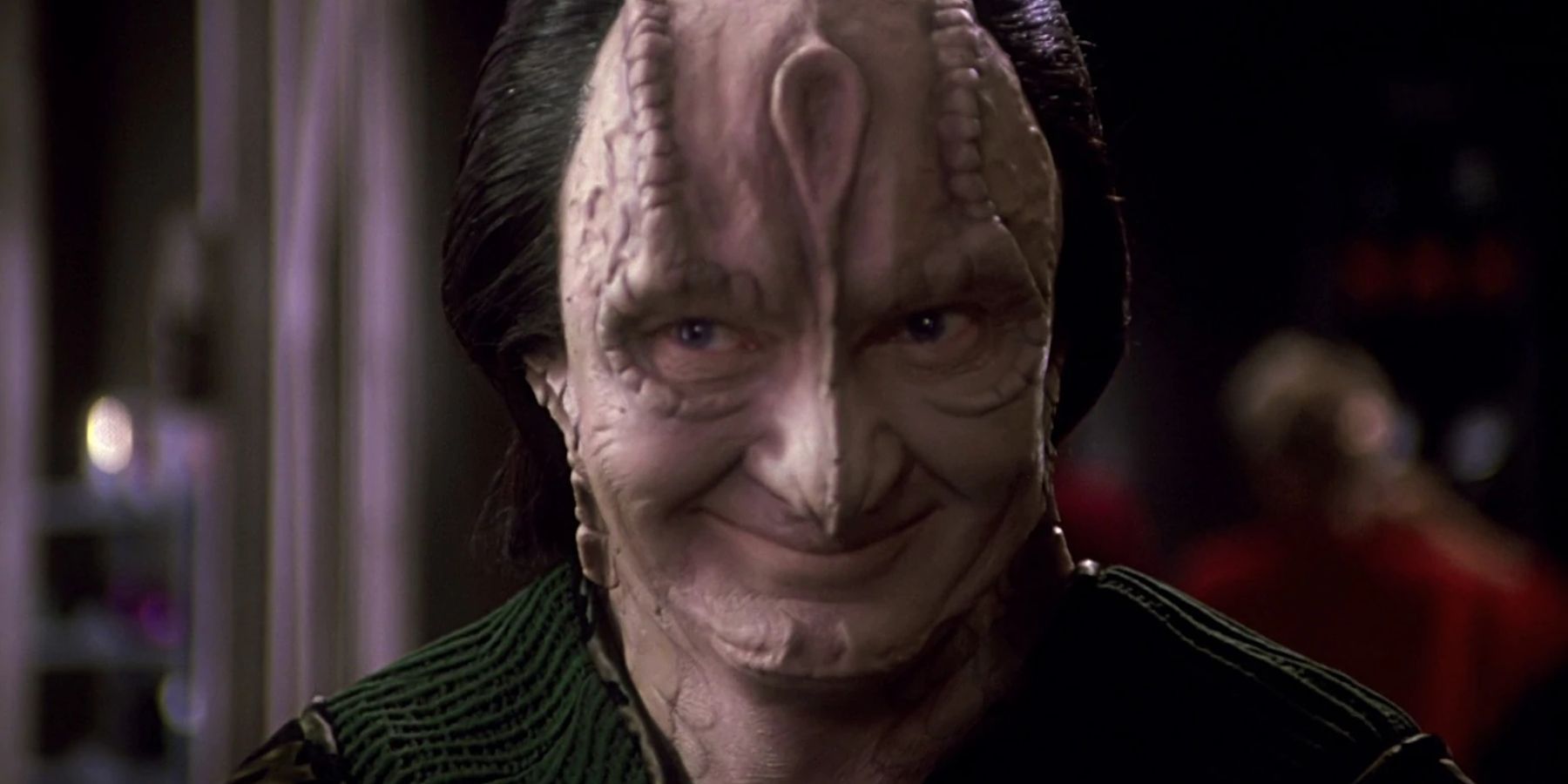A wise man once said that “it’s easy to be a saint in paradise.” That is, it is easy to do amazing things and follow the rules to the letter when one is in a privileged position to do so. This man was captain Benjamin Sisko, commander of the Deep Space 9 space station orbiting the planet Bajor in the Star Trek series with the appropriate name: Deep Space 9. He was a powerful and great captain but made some questionable decisions along the way, but were they really that bad to grant him the war criminal title?
From the very start, the Star Trek creators wanted Deep Space 9 to be a grittier program that would highlight the darker underbelly of the Federation, far away from the fancy technology and shiny new spaceships the franchise had long been known for. While Picard and Janeway were given some of the best ships Starfleet could provide, Commander Sisko was given command of a run-down, repurposed space station that used to be a Cardassian space labor camp. While they modernized the best they could, the station remained a ramshackle bunch of floating bolts, with the large amount of non-Starfleet foot traffic passing through the scene constantly changing. It made for great television, but not so great when it came to keeping the place clean and tidy.
The Weight Of Sisko's Position
The show focused on moral ambiguity, as well as an attempt to bring the real consequences of conglomerate politics to light, giving much more depth to Roddenberry’s utopian vision of Starfleet and the Federation. Sisko was a broken man, having lost his wife to the cyberbully Borg (specifically assimilated Picard as Locutus of Borg) and now trying to raise his son on a space station he didn’t want to be on in the first place.
Sisko has to burden the large amount of difficult and ethically gray choices he was forced to make over the shows running. One such burden is that which every Starfleet captain has to carry: whether the needs of the many outweigh the needs of the few. Sisko, though, had to make decisions like this practically every other episode.
Some of these decisions were impossible and forced him to take actions that were criminal, both in the legal sense and the moral sense. Sisko would violate Federation rules, but he would always do them for the sake of the Federation and the people it was meant to protect. Some of these actions were unavoidably defined as war crimes, most notably launching biological weapons against the Maquis who were fighting against the Cardassians. He’s not the only Starfleet captain to make decisions like these, but at least in this instance, the story revolves around how this is an immoral move, one that Sisko is ashamed of.
The Morally Questionable Decisions
At the end of Season 2 of Deep Space 9, the Maquis themselves were using biological weapons to quickly wipe out the Cardassians. In retaliation, Sisko does the same, launching a chemical weapon that destroys the Maquis colony planet, rendering it uninhabitable to any species other than Cardassians. His actions force the inhabitants to flee, and he threatens that if the Maquis do not stop their rebellion, he will systematically do this to every one of their planets. That’s the first red flag, but the tale continues with possibly the biggest example of Sisko's soul taking a hit to protect those he had sworn to care for.
In the season 6 episode “In the Pale Moonlight,” the Federation has been in a grueling war against the Dominion, a race of shape shifters ruled by a fascist dictatorship who liken themselves to gods. In order to get the upper hand, the Federation looks for help from their longtime enemy and Vulcan counterpart the Romulans, but all attempts to gain their favor have failed. Sisko comes up with a plan to trick them into helping. The plan, of course, goes wrong, and it leads to the friendly ex-Cardassian spy Garak murdering a Romulan. Upon hearing this, Sisko does nothing and lets the Romulans think that this was a direct attack from the Dominion, as despicable actions such as these would never come from Starfleet. They were successfully staying out of it, not wanting to join in the war, but were manipulated into not only siding with the Federation, but suffering massive casualties as a result.
While these acts are technically still deemed as war crimes and have serious moral and ethical implications, they are also implications that affect Sisko directly, breaking him in the process. He is a good man who is forced to do bad things in order to not only survive, but ensure as many people survive as possible. His actions are hard to support, but in a life-or-death pinch, the show does an excellent job at showing how these are actions that were necessary to some degree.
While this is not in support of them, it is great to see a program that is self-aware of the problems of the actions it is taking, in direct conflict to Voyager. Janeway is oblivious to the moral issues of her actions, like giving the Borg a biological weapon that pretty much results in a genocide, or murdering Tuvix, a living being, in order to get her two friends back. Not only this, but there are little to no consequences, she just continues on her merry way like nothing had happened. Both are technically war criminals, but at least Sisko knows that his decisions have wider moral implications.

